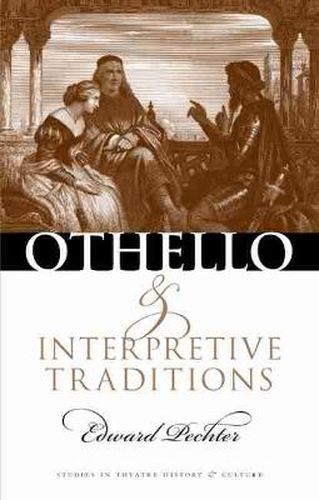Readings Newsletter
Become a Readings Member to make your shopping experience even easier.
Sign in or sign up for free!
You’re not far away from qualifying for FREE standard shipping within Australia
You’ve qualified for FREE standard shipping within Australia
The cart is loading…






During the past twenty years or so, Othello has become the Shakespearean tragedy that speaks most powerfully to our contemporary concerns. Focusing on race and gender (and on class, ethnicity, sexuality, and nationality), the play talks about what audiences want to talk about. Yet at the same time, as refracted through Iago, it forces us to hear what we do not want to hear – like the characters in the play, we become trapped in our own prejudicial malice and guilt. In this stimulating study, Edward Pechter describes the play’s design and effects in a way that accounts for its extraordinary power to engage the interests of audiences and readers not just in our time but throughout history. Going back to the play’s original production, he argues Othello is unique in that it divides the central space of its action equally between protagonist and antagonist. This design has made strenuous demands on theatrical productions; the stage history of the play may be plotted as a continuous refusal or inability to allow for Othello’s and Iago’s equivalent attractive power. While Othello and its interpretive traditions are distinguishable from one another as a matter of analytical convenience, Pechter demonstrates how they are mutually dependent, reciprocally constitutive ways of talking about the same thing. As a result, the distinction between the current and historical versions tends to blur if not collapse. Since so many current versions of Shakespeare’s tragedy depend fundamentally on claims of an enlightened critical detachment from tradition, the situation may be taken as a peculiarly intense instance of the power of Othello to defeat what we may think of as our better nature.
$9.00 standard shipping within Australia
FREE standard shipping within Australia for orders over $100.00
Express & International shipping calculated at checkout
During the past twenty years or so, Othello has become the Shakespearean tragedy that speaks most powerfully to our contemporary concerns. Focusing on race and gender (and on class, ethnicity, sexuality, and nationality), the play talks about what audiences want to talk about. Yet at the same time, as refracted through Iago, it forces us to hear what we do not want to hear – like the characters in the play, we become trapped in our own prejudicial malice and guilt. In this stimulating study, Edward Pechter describes the play’s design and effects in a way that accounts for its extraordinary power to engage the interests of audiences and readers not just in our time but throughout history. Going back to the play’s original production, he argues Othello is unique in that it divides the central space of its action equally between protagonist and antagonist. This design has made strenuous demands on theatrical productions; the stage history of the play may be plotted as a continuous refusal or inability to allow for Othello’s and Iago’s equivalent attractive power. While Othello and its interpretive traditions are distinguishable from one another as a matter of analytical convenience, Pechter demonstrates how they are mutually dependent, reciprocally constitutive ways of talking about the same thing. As a result, the distinction between the current and historical versions tends to blur if not collapse. Since so many current versions of Shakespeare’s tragedy depend fundamentally on claims of an enlightened critical detachment from tradition, the situation may be taken as a peculiarly intense instance of the power of Othello to defeat what we may think of as our better nature.